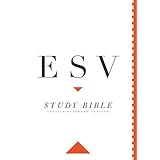 I read a familiar, but still disturbing, post today entitled, “The Scandal of Biblical Illiteracy: It’s Our Problem”. It’s available in its entirety at http://www.albertmohler.com/2016/01/20/the-scandal-of-biblical-illiteracy-its-our-problem-4/.
I read a familiar, but still disturbing, post today entitled, “The Scandal of Biblical Illiteracy: It’s Our Problem”. It’s available in its entirety at http://www.albertmohler.com/2016/01/20/the-scandal-of-biblical-illiteracy-its-our-problem-4/.
The content reveals why most of my posts are “devotional commentaries” (or “little sermons” ) on the Scripture. Christian bloggers write posts on everything from theological doctrines to practical “how to’s” to church history to personal stories. Most are worth reading. I am not competing with them or suggesting mine are “better”. I write mostly about “The Word”, because I agree with Dr. Mohler: Christians in American are largely biblically illiterate.
Mohler calls this a “scandalous problem” and declares “it’s up to us to fix it”. Let me say at the outset the only “fix” is to prayerfully read and study Scripture. Neither my blog nor anyone’s writing can substitute. The “fix” is to read God’s Word. That’s why I typically quote (rather than just refer to) Scripture. Even so, at best it’s only part of the “fix”.
Before looking further at the “fix” let’s see how bad our illiteracy is. This information comes from various researchers, people like the Barna Research Group, George Gallup, etc.). According to Mohler’s post, “Fewer than half of all adults can name the four gospels. Many Christians cannot identify more than two or three of the disciples. Barna claims “60 percent of Americans can’t name even five of the Ten Commandments. No wonder people break the Ten Commandments all the time. They don’t know what they are.”
Eighty-two percent of Americans say, “God helps those who help themselves” is in the Bible. Eighty-one percent of self-professed born again Christians agree! Some research results are tragically funny. Barna polling shows “that at least 12% of adults believe that Joan of Arc was Noah’s wife.” In another survey over 50% of graduating high school seniors “thought Sodom and Gomorrah were husband and wife.” And another poll “indicated that the Sermon on the Mount was preached by Billy Graham.”
Why does this illiteracy matter? It matters not so we can win a Bible trivia game at a youth group. Mohler offers a powerful reason that should shake us if we’re among the “illiterates”: “We will not believe more than we know, and we will not live higher than our beliefs.” To put it another way, the quality of our faith is determined by the extent of our biblical knowledge and the way we live is determined by our faith. Now, knowing the names of the twelve disciples won’t bolster our faith and thereby shape our lifestyle. But, as Mohler points out, “An individual who believes that “God helps those who help themselves” will find salvation by grace and justification by faith to be alien concepts.”
How, then, can we improve biblical literacy?
- Pastors must preach the Bible—what it says, what it means, how to live it out.
- Members must regularly be good students of sermons—listening, jotting notes, taking away knowledge of the truth taught, coupled with an aim to act on it.
- Youth groups must include serious Bible study as part of their program.
- Parents must read the Bible and pray with their children at home.
- Christians individually, or as a married couple, must make time daily to read God’s Word and pray.
- Blog-readers should read blogs that focus on God’s Word, read them with Bible open, and read them prayerfully.
- Everybody should buy and use a study Bible that gives introductory information to each book. I think the ESV Study Bible is the best.
An encouragement. The Bible is an intimidating, challenging book to read, made harder by the dumbing-down of our society as visual media (Internet, smart phones, etc.) push reading off the stage. But the only way to become Bible-literate is to prayerfully read it. (I try to write my blog in series so we’re walking through a Bible book or section.) I know from experience that reading doesn’t just add knowledge of Scripture; as time goes on reading multiplies it.
Mohler’s concluding words are also mine . . .
I’m not suggesting that reading my blog guarantees biblical literacy.
With my prayers, I just humbly offer it as a help.


Recent Comments